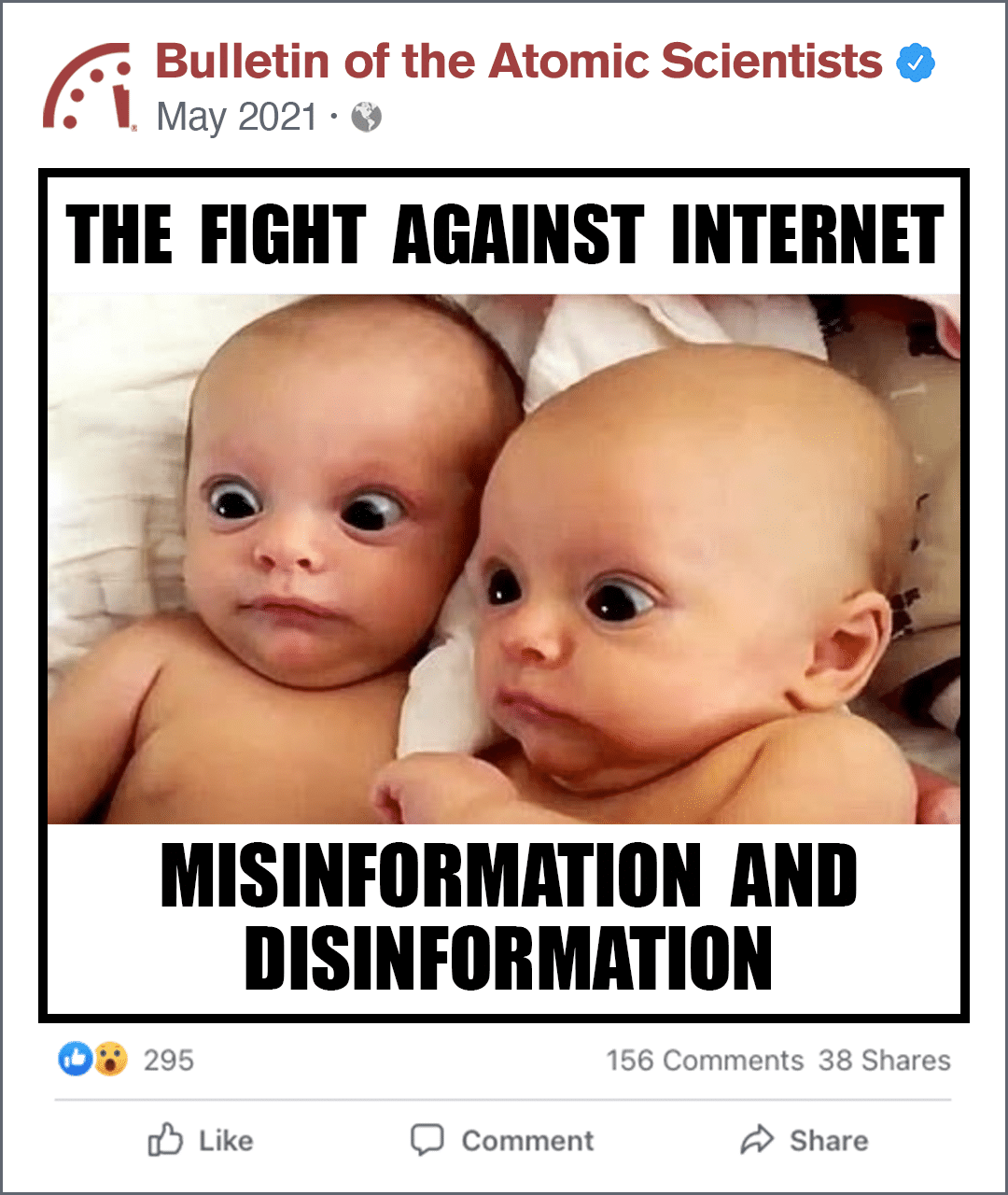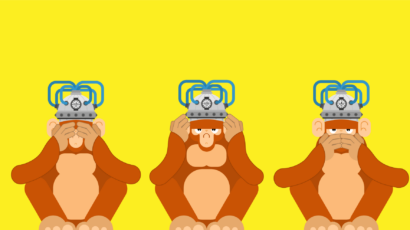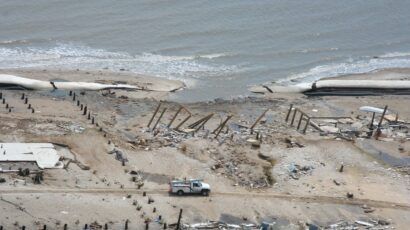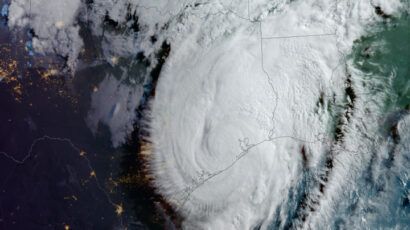Introduction: How to dial back a disinformation dystopia
By John Mecklin | May 19, 2021
Introduction: How to dial back a disinformation dystopia
By John Mecklin | May 19, 2021
Since 2018, the Bulletin’s Science and Security Board has explicitly included internet disinformation in its deliberations[1] on setting[2] the Doomsday Clock[3], noting that disinformation acts as a threat multiplier, exacerbating the dangers of nuclear weapons and climate change and undermining democracy. In the past year, the deleterious effects of internet-based conspiracy theories have become especially and alarmingly evident in regard to the COVID-19 pandemic, leading the World Health Organization to use the term “infodemic” in describing the tsunami of coronavirus disinformation that has washed over the world.
There is no silver bullet that will set the 21st century information ecosystem right, driving the sordid fantasies of QAnon, anti-vaccination anti-science, stolen-election propaganda, and other digital lies to extinction. Whichever American coined the phrase “there’s a sucker born every minute” was, after all, probably understating 19th century reality by at least an order of magnitude. And in our era, the power of globally networked digital technology has favored hucksters of all kinds and made humanity’s credulity dilemma markedly worse.
But the management of difficult problems is a Bulletin forte, and in this issue, we asked a range of experts for their thoughts on how to at least begin to limit the worst effects of internet-based mis- and disinformation on public discourse and public policy:
- In an interview with associate editor Matt Field, internet pioneer turned professor Ethan Zuckerman argues that public broadcasters, neighborhoods, governments, and other groups can purposefully build social media platforms that aim to provide civic benefit, rather than the “engagement” that profit-driven platforms seek.
- In an interview with me, Alan Miller, a Pulitzer Prize-winning investigative reporter for the Los Angeles Times who founded the News Literacy Project,[4] explains how its virtual classroom, known as Checkology,[5] helps middle and high school students learn to “identify credible information, seek out reliable sources, and know what to trust, what to dismiss, and what to debunk.”
- Communications researchers Leticia Bode and Emily Vraga describe efforts to counter hate speech and misinformation on social media with peer correction strategies that can—when used in conjunction with other approaches—help stem the tide of internet misinformation.
- Researchers with the Empirical Studies of Conflict lab at Princeton University surveyed the huge increase in laws that ostensibly seek to counter misinformation around the world. As the continuing problem of pandemic misinformation illustrates, it’s unclear how effective these laws are.
- And Notre Dame experts Michael Yankoski, Walter Scheirer, and Tim Weninger report on artificial intelligence-driven systems that social media platforms are developing to automatically remove harmful content, primarily through text-based analysis. But, these researchers note, developing the entirely new AI systems necessary to detect multimedia disinformation—photos, videos, audio recordings, and memes—will be difficult.
The fight against internet-enabled disinformation will be Sisyphean in nature. Lies spread faster than truth; conspiracy theories are made to metastasize. But facts will win the day in the end, if enough people of good will decide to defend them in thoughtful, persistent ways. This outcome is as certain, in my mind, as the Eastern sunrise.
Together, we make the world safer.
The Bulletin elevates expert voices above the noise. But as an independent nonprofit organization, our operations depend on the support of readers like you. Help us continue to deliver quality journalism that holds leaders accountable. Your support of our work at any level is important. In return, we promise our coverage will be understandable, influential, vigilant, solution-oriented, and fair-minded. Together we can make a difference.
Keywords: Disinformation, hate speeh, infodemic, misiinformation, news literacy, propaganda
Topics: Disruptive Technologies






















This will continue as a long as 1% have all the wealth. Wealth disparity is a large part of the problem. Why should one trust people whose shirt cost the same as their monthly rent.
You seem to be saying that our biggest problem is grass root movements spreading misinformation. It is a big problem. But an even bigger problem is government and mainstream media spreading their own lies (such as there being weapons of mass destruction in Iraq). In doing so they have lost the credibility they need to counter the other.